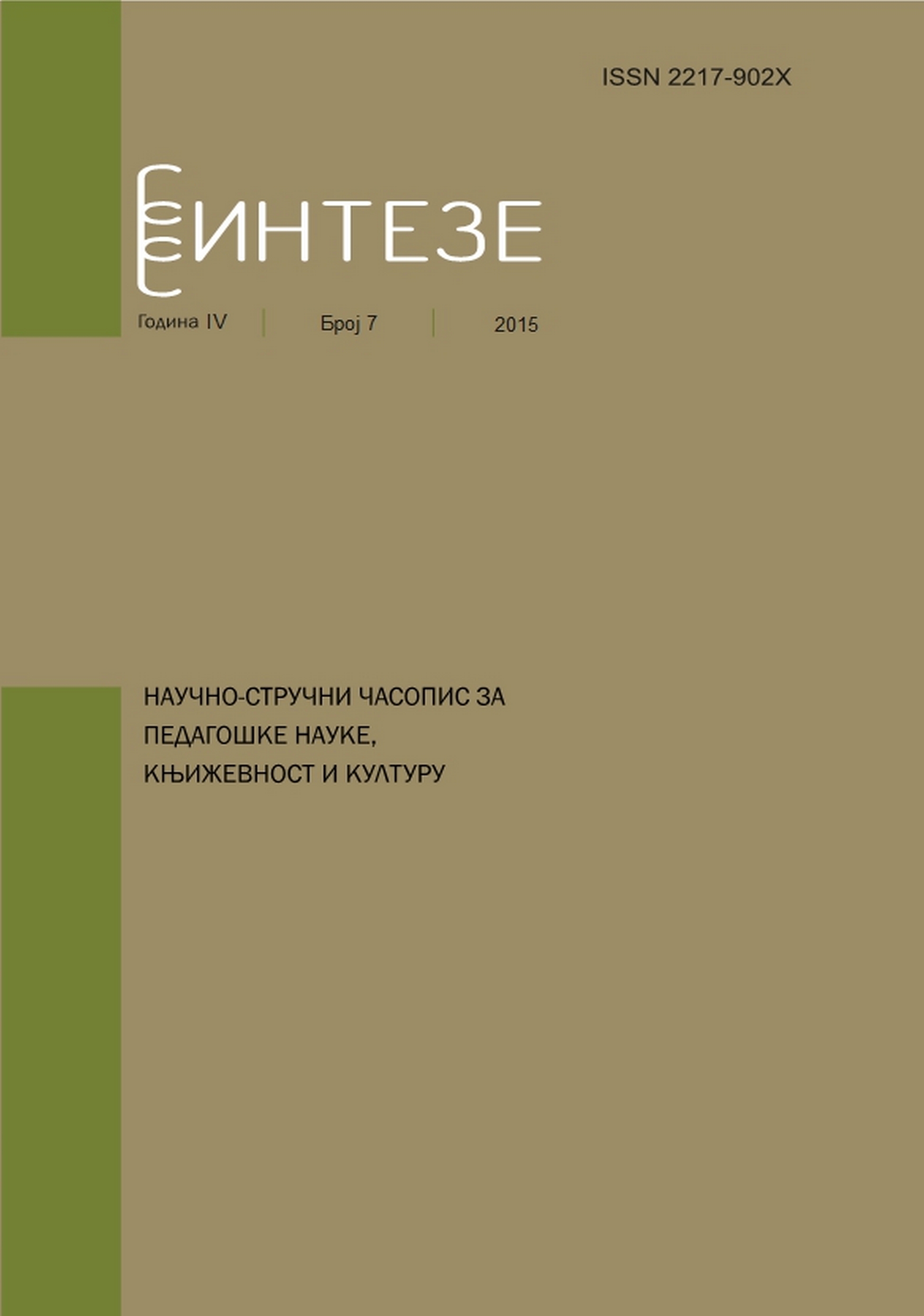Elements and indicators for identification of quality of primary education
Abstract
Education is one of the main pillars of the quality of knowledge, and, in turn, social progress in general. There are numerous positions concerning quality of education, some more, and some less detailed. In order to determine the quality of a primary school, for example as “poor”, “mediocre” or “excellent”, we use, more or less precisely, a certain idea about the value, and thus identify, again with a certain extent of accuracy, the position of the school in question in relation to other schools. In terms of the quality of education, it is necessary to analyze all segments of educational process. This includes the analysis of objectives of educational process, products of quality education as well as adequate and accessible technical-instrumental, that is, operational-procedural level of quality of educational process. Most authors connect the quality of primary education to results, that is, outcomes of education. In order to achieve quality of education, we need to achieve quality of particular components or elements of the whole of education. This paper deals with theoretical review of elements and indicators of quality of basic education, and provides a review of pedagogical strategies and their effect on certain components of quality with the aim to improve the effects on pedagogical and didactical resources of the quality of education.
References
Анђић, Д. (2006). Квалитета у образовању и професионалном усавршавању учитеља основних школа с нагласком на образовање за околиш и одрживи развој. У Зборнику радова: "Према квалитетној школи". (стр. 57-65). Сплит: Филозофски факултет, Хрватски књижевно-педагошки збор.
Вилотијевић, М. (2000). Квалитет образовања и школе-кључ за 21. век. Педагогија, 2,
Вилотијевић, М. (1996). Системско-теориске основе наставног процеса. Београд: Учитељски факултет.
Влаховић, Б. (2000). Иновације и квалитет образовања. У: Зборнику радова са међународне конференције "Систем квалитета у образовању према захтевима серије стандарда ЈУС 9000". Београд: Завод за уџбенике и наставна средства.
Влаховић, Б., & Вујсић-Живковић, Н. (2005). Наставник: изазови професионализације. Београд: Едука.
Meijer, C. (2003). Inclusive Education and Classroom Practise. Preuzeto sa https://www.european-agency.org/sites/default/files/inclusive-education-and-classroom-practices_iecp-en.pdf
Комисија за развој школског програма. (2003). Реформа образовања у Републици Србији: Школски програм- концепција, стратегија, имплементација. Београд: Министарство просвете и спорта Републике Србије.
Квалитетно образовање за све: изазови реформе образовања у Србији. (2004). Београд: Министрство просвете и спорта Републике Србије.
Поткоњак, Н. (2000). Квалитет образовања. У:Зборник радова међународне конференције "Систем квалитета у образовању према захтевим серије стандарда ЈУС 9000". Београд: Завод за уџбенике и наставна средства.
Ратковић, М. (2006). Кардиналне функције реформе школе: Планирање и евалуација. Нови Сад: Мисао.
Lowe, J., & Istance, D. (1998). Škole i kvalitet. Beograd: Zavod za udžbenike i nastavna sredstva.
Autori koji objavljuju u ovom časopisu pristaju na sledeće uslove:
- Autori zadržavaju autorska prava i pružaju časopisu pravo prvog objavljivanja rada i licenciraju ga "Creative Commons Attribution licencom" koja omogućava drugima da dele rad, uz uslov navođenja autorstva i izvornog objavljivanja u ovom časopisu.
- Autori mogu izraditi zasebne, ugovorne aranžmane za neekskluzivnu distribuciju članka objavljenog u časopisu (npr. postavljanje u institucionalni repozitorijum ili objavljivanje u knjizi), uz navođenje da je članak izvorno objavljen u ovom časopisu.
- Autorima je dozvoljeno i podstiču se da postave objavljeni članak onlajn (npr. u institucionalni repozitorijum ili na svoju internet stranicu) pre ili tokom postupka prijave rukopisa, s obzirom da takav postupak može voditi produktivnoj razmeni ideja i ranijoj i većoj citiranosti objavljenog članka (Vidi Efekti otvorenog pristupa).

